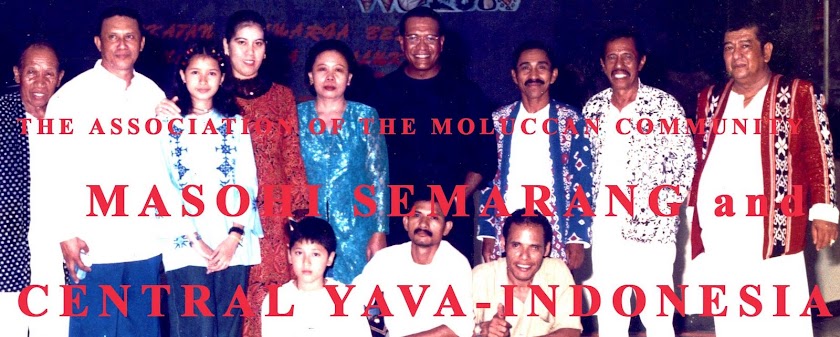Pure resistance shown by this hero with keteguhannya who does not want to compromise with the Netherlands. Several times the Dutch government inducement that he is willing to cooperate as a condition of releasing hanging never menggodanya. He was selected in the autumn air as the pillar of the Putra Kesuma than live as a free penghianat who will be lifelong disesali mothers womb melahirkannya.
In the history of European nations in the archipelago, many parts of Indonesia that have been occupied by two colonial countries in turn. Sometimes perpindahtanganan control from one country to another is sometimes even officially done, without struggling. Thus Maluku region, this area was occupied by the Dutch and then switch domination by the English and back again by the Netherlands.
Thomas Matulessy own once control of the turnover. In the year 1798, the Maluku region previously occupied by the Netherlands changed its domination by British troops. When the British government took place, Thomas Matulessy was signed in the UK and military agencies have an important position last Sergeant.
But 18 years after the British government in Maluku, precisely in the year 1816, the Netherlands back in power. Once the Dutch government in power again, the people suffering Maluku direct experience. Various forms of pressure are common, such as work order, pemaksaan delivering agricultural products, and others. Does not receive proof pressures, the people finally agreed to make any resistance to liberate themselves. Resistance initially occurred in Saparua then quickly spread to other areas throughout the Moluccas.
In Saparua, Thomas Matulessy elected by the people to lead the resistance. For that, he was captain Pattimura dinobatkan title. On 16 May 1817, an extraordinary battle that occurred. Saparua people under the leadership of captain Pattimura successful jockey Duurstede fortress. Dutch soldiers in the fortress that all died, including the Resident Van den Berg.
Dutch troops who then sent to retake the fort was also destroyed army lieutenant Pattimura. Consequently, the fort for three months was successfully mastered Patimura army lieutenant. However, the Netherlands does not want to give the board the fortress. Netherlands and make large-scale operation to mobilize more troops equipped with more modern weapons. Pattimura forces finally overwhelmed and beaten back.
In a house in the Siri Sori, lieutenant Pattimura successfully arrested Dutch troops. Together with some members pasukannya, he was brought to Ambon. There several times that he be prepared to cooperate with the Dutch government, but always ditolaknya.
Finally, he tried in the Court and the Dutch colonial hanging even be him. However, the Netherlands still hopes Pattimura berobah attitudes still want to be ready in cooperation with the Netherlands. One day before the execution hanging was conducted, Pattimura still be. But it shows kesejatian Pattimura perjuangannya still reject the inducement that. Victoria in front of the fortress, Ambon on 16 December 1817, the execution was carried out.
Pattimura lieutenant killed as National Heroes. From perjuangannya he left implicit message to the heir to the nation that has never sell ourselves honor, family, nation, and especially this country. Read More...Baca selanjutnya...


























